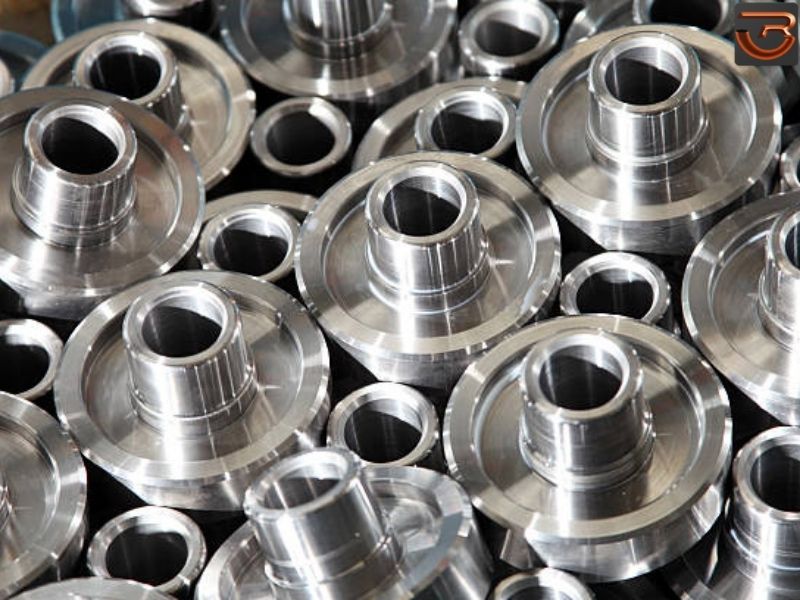
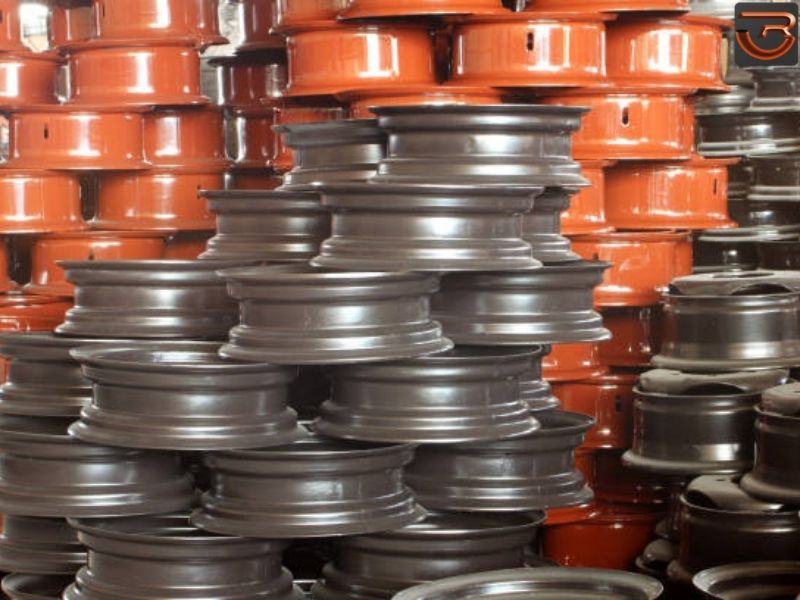
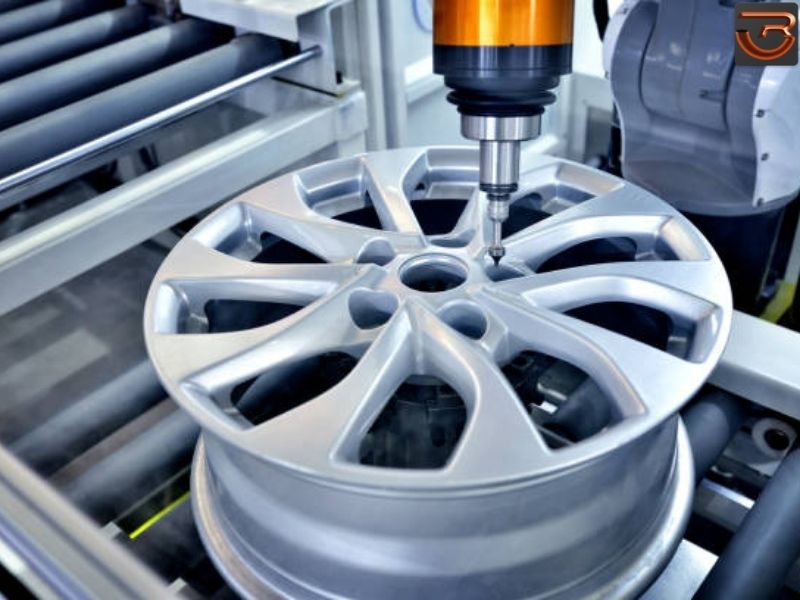
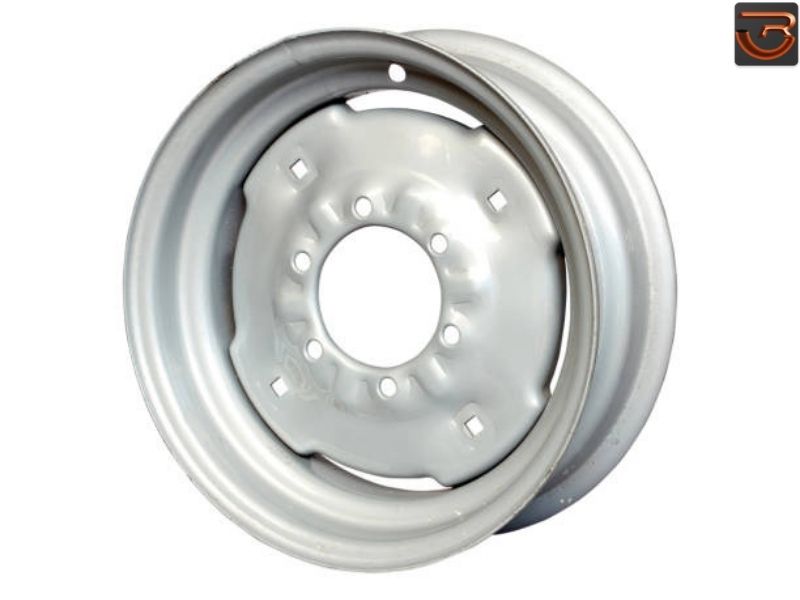
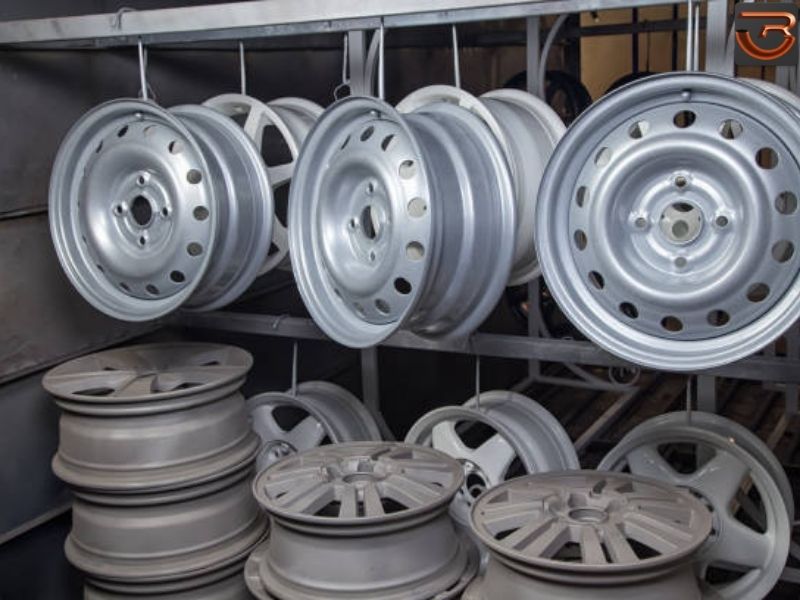
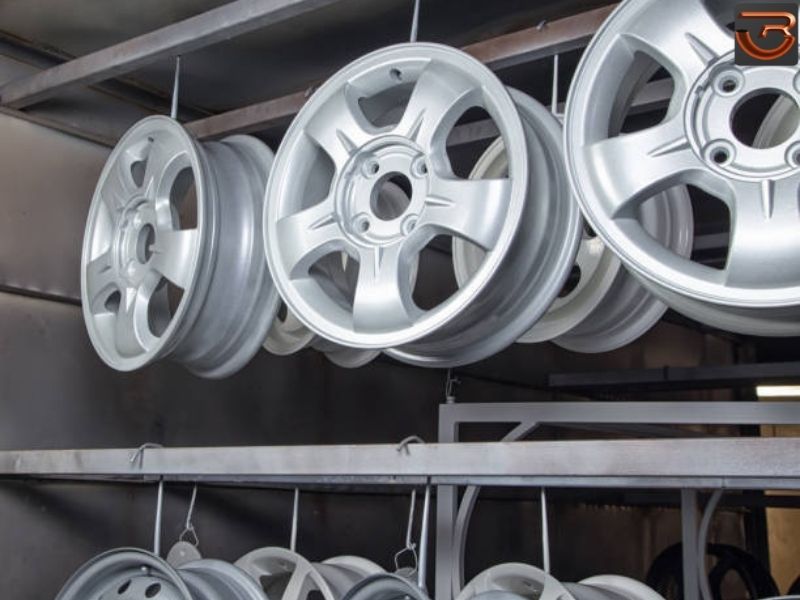
Aluminium Alloy Wheel
Aluminum alloy wheels, often simply referred to as alloy wheels, are wheels that are made from an alloy of aluminum and other elements. These wheels are widely used in the automotive industry and are known for their lightweight, aesthetic appeal, and performance advantages.
Composition:
➤Aluminum Alloys:Aluminum alloy wheels are typically made from a combination of aluminum and other metals, such as magnesium or silicon. The specific alloy composition varies, and different alloys offer varying levels of strength, durability, and weight.
Advantages:
➤Lightweight:One of the primary advantages of aluminum alloy wheels is their lightweight nature. This results in improved fuel efficiency and handling performance
➤Aesthetic Appeal:Alloy wheels are popular for their modern and stylish appearance. They often contribute to the overall aesthetic of a vehicle and are available in a variety of designs and finishes.
➤Heat Dissipation:Aluminum alloys have better heat dissipation properties than traditional steel wheels. This can be beneficial in high-performance or heavy-duty applications, such as racing or towing.
➤Corrosion Resistance:Aluminum alloy wheels are resistant to corrosion, making them suitable for use in various weather conditions.
Manufacturing Processes:
➤Casting:Most aluminum alloy wheels are manufactured using casting processes. This involves pouring molten aluminum alloy into molds to create the wheel's design.
➤Forging: Some high-performance or specialty wheels may be forged instead of cast. Forging involves shaping the metal by applying pressure, resulting in a stronger and denser wheel.
Applications:
➤Automotive Industry:Aluminum alloy wheels are widely used in the automotive industry for both passenger vehicles and high-performance sports cars. They are often chosen for their combination of strength, lightness, and aesthetic appeal.
➤Aftermarket Upgrades:Many car enthusiasts choose to upgrade their vehicle's wheels to aluminum alloy wheels for performance and aesthetic reasons. Aftermarket alloy wheels come in a variety of styles and sizes.
Maintenance:
➤Cleaning:Aluminum alloy wheels are relatively easy to clean. Regular cleaning helps maintain their appearance and prevents the buildup of brake dust and road grime.
➤Polishing: Some alloy wheels may benefit from periodic polishing to enhance their shine. However, the specific care requirements can depend on the wheel's finish.
| Alloy: Aluminum alloy wheels are typically made from high-strength alloys such as 6061 or 6063. These alloys offer a good balance of strength, durability, and light weight. |
| Temper: The temper of aluminum alloy wheels is crucial for achieving the desired mechanical properties. Common tempers include T6 for enhanced strength. |
| Thickness: Thickness: The thickness of aluminum alloy wheels is a critical factor, influencing their strength and overall performance. The thickness can vary based on the design and intended use of the wheels. |
| Width: The width of aluminum alloy wheels is a key design parameter. It determines the contact patch of the tire and affects the handling characteristics of the vehicle. |
| Pattern: The pattern on aluminum alloy wheels often refers to the design elements such as spokes and rims. Alloy wheels come in various designs and patterns, catering to different aesthetic preferences. |
| Standard: Compliance with industry standards ensures the quality and safety of aluminum alloy wheels. Common standards include JWL (Japan Light Alloy Wheel) and VIA (Vehicle Inspection Association). |
| Surface Treatment: Aluminum alloy wheels may undergo surface treatments for enhanced corrosion resistance and improved aesthetics. Common treatments include clear coating, painted finishes, or polishing. |
| PVC Coated: PVC coating is not a common feature for aluminum alloy wheels. The focus is more on protective coatings that enhance the appearance and durability of the wheels. |
| MOQ (Minimum Order Quantity): Manufacturers may specify a minimum order quantity for aluminum alloy wheels. This helps optimize production processes and maintain cost efficiency. |
| Packing: Details on how the aluminum alloy wheels are packed for shipping, including information on packaging materials and methods to ensure safe transport. |
| Port of Dispatch: Specifies the port from which the aluminum alloy wheels will be dispatched. This is crucial for logistics and shipping coordination. |
| Delivery Time: The estimated time it takes for the aluminum alloy wheels to be delivered from the time of order placement. Delivery time can be influenced by factors such as production time and shipping logistics. |
| Payment: Information on accepted payment methods and terms for aluminum alloy wheel orders. This may include details on advance payments, letters of credit, or other financial arrangements. TT / LC / TT+LC |
Considerations:
➤Size and Fit:When choosing alloy wheels, it's essential to consider the size and fitment to ensure compatibility with the vehicle.
➤Budget:Alloy wheels come in a range of price points. Higher-end forged wheels may be more expensive than cast wheels.
➤Use: The vehicle's intended use should be considered when selecting a repair or replacement.. For example, high-performance driving may benefit from lightweight forged wheels, while off-road applications may require durable designs.
